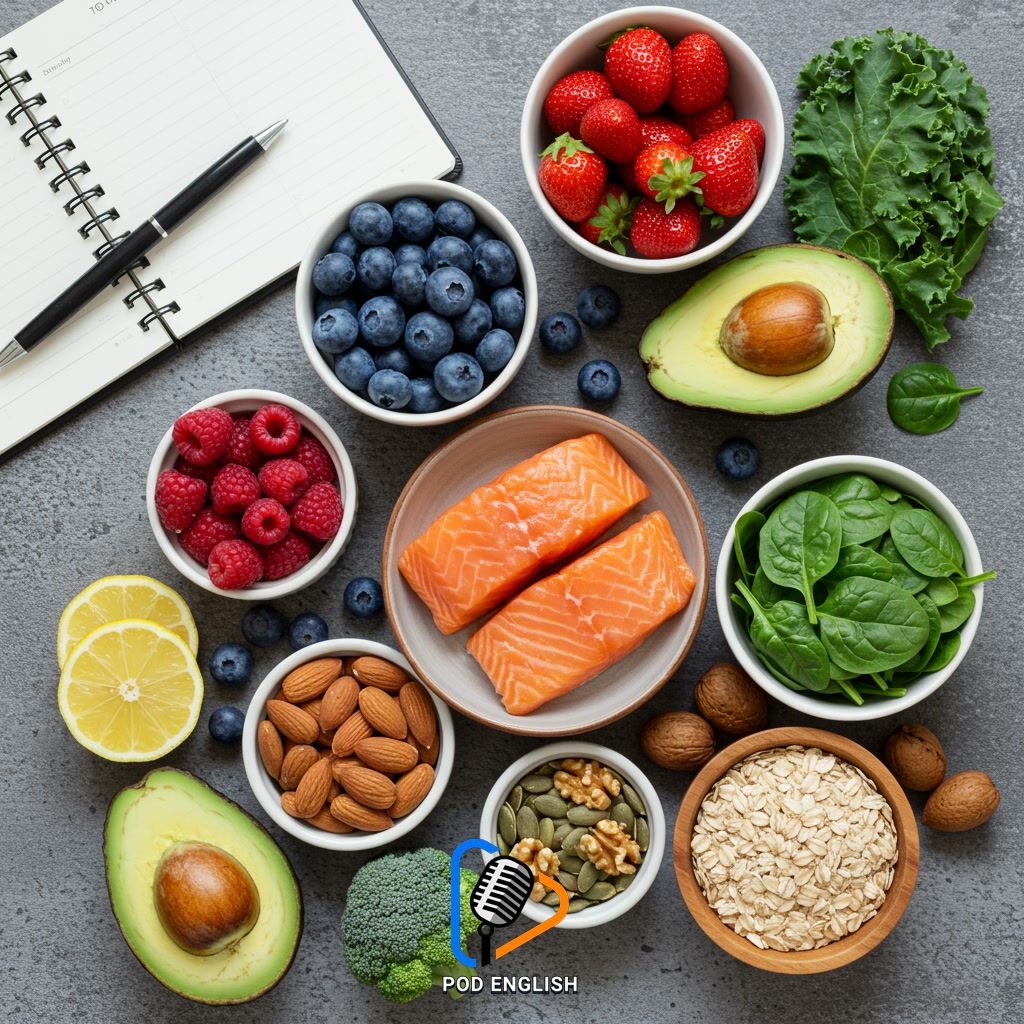Learn English
Sharpen Your Brain: Diet Secrets for English Learners
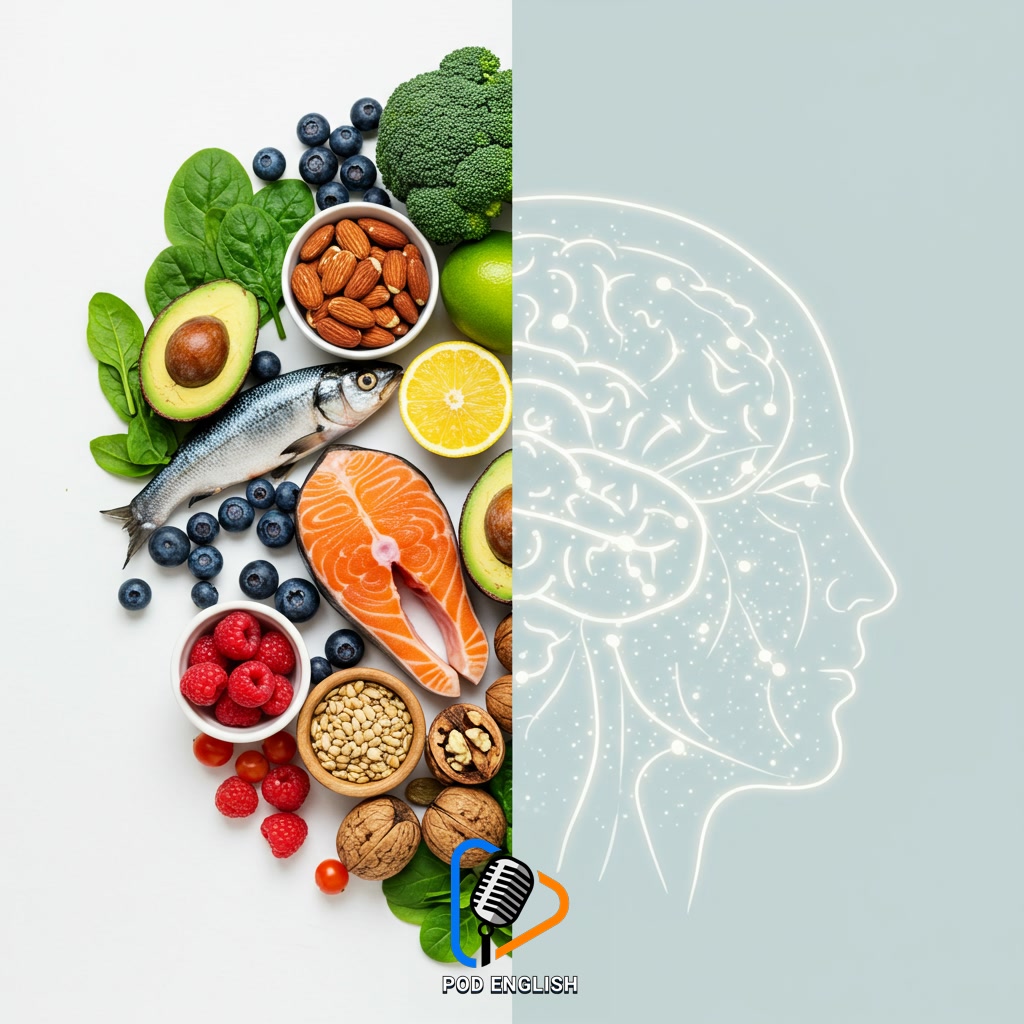
This content explores how specific dietary choices can enhance brain function, directly benefiting the process of learning English. It reveals nutritional strategies that can improve memory, focus, and overall cognitive abilities essential for language acquisition. By adopting these diet tips, English learners can potentially accelerate their progress and retention of new vocabulary and grammar. The focus is on practical nutritional advice tailored to support the cognitive demands of language study.
Table of Contents
- Section 1: The Brain-Learning Connection: How Diet Impacts English Acquisition
- Section 2: Essential Nutrients for a Sharper English Learning Brain
- Section 3: Top Foods to Include in Your English Learner’s Diet
- Section 4: Foods and Habits to Limit for Optimal Brain Function
- Section 5: Hydration and Other Lifestyle Tips for Enhanced Learning
- Section 6: Building a Brain-Healthy Meal Plan for Your English Studies
Section 1: The Brain-Learning Connection: How Diet Impacts English Acquisition
Your brain is the ultimate tool for learning, especially when tackling a new language like English. Just like a car needs the right fuel to run smoothly, your brain requires specific nutrients to perform at its best. Eating a balanced diet provides the essential building blocks for cognitive functions crucial for English acquisition. These include improving memory retention for vocabulary and grammar, enhancing focus during study sessions, and boosting the ability to process new information quickly. By understanding this vital brain-learning connection, you can make dietary choices that directly support your language learning journey, potentially making the process faster and more effective. Fueling your brain correctly is a smart strategy for any serious English learner.
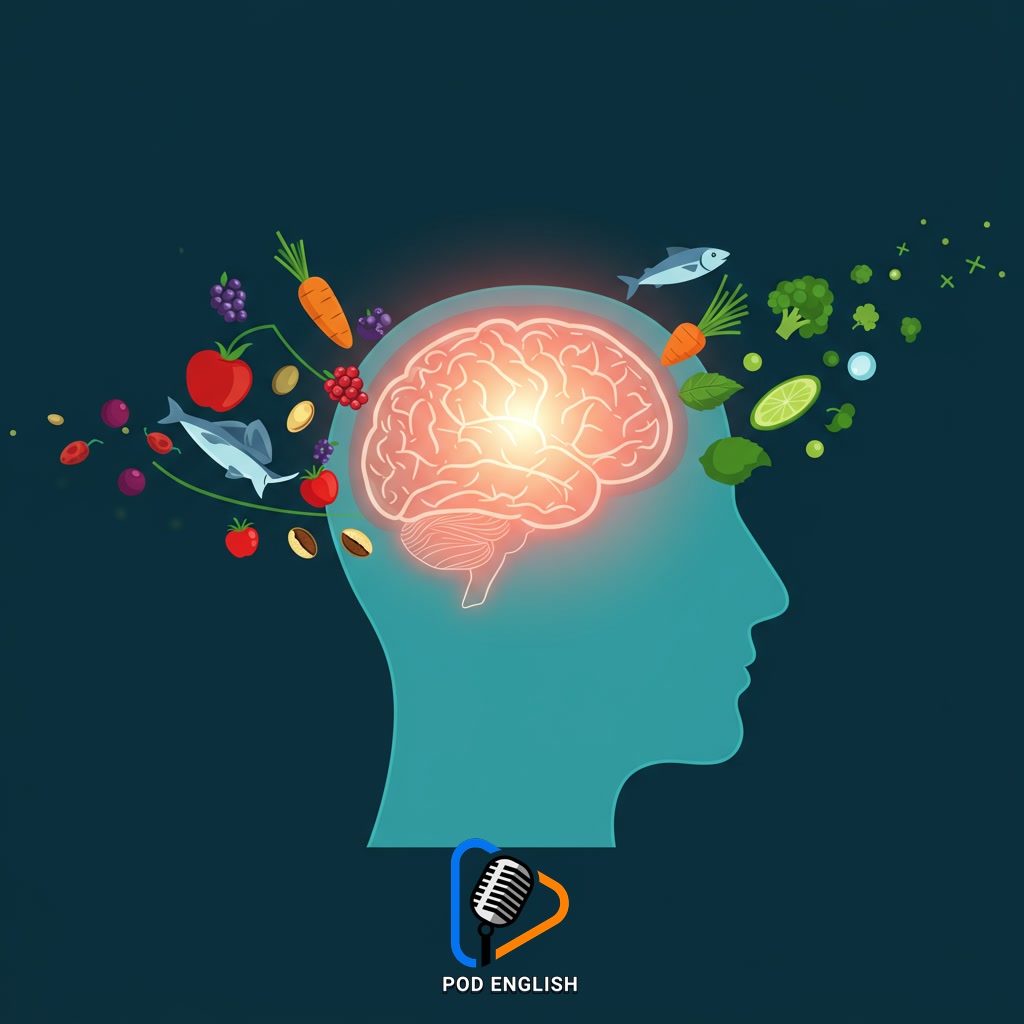
Section 2: Essential Nutrients for a Sharper English Learning Brain
Building on the idea that your brain needs optimal fuel, let’s explore the specific nutrients that are essential for boosting its performance, particularly for demanding tasks like learning English. Omega-3 fatty acids, commonly found in fatty fish, are vital building blocks for brain cells and are strongly linked to improved memory and cognitive function, which are critical for retaining new vocabulary and grammar. B vitamins, abundant in whole grains and leafy greens, play a key role in energy production and neurotransmitter synthesis, helping you maintain focus and concentration during study sessions. Antioxidants from colorful fruits and vegetables protect brain cells from damage, maintaining long-term brain health. Ensuring you get enough of these key nutrients fuels your brain, making the process of understanding, remembering, and using English more effective and efficient.
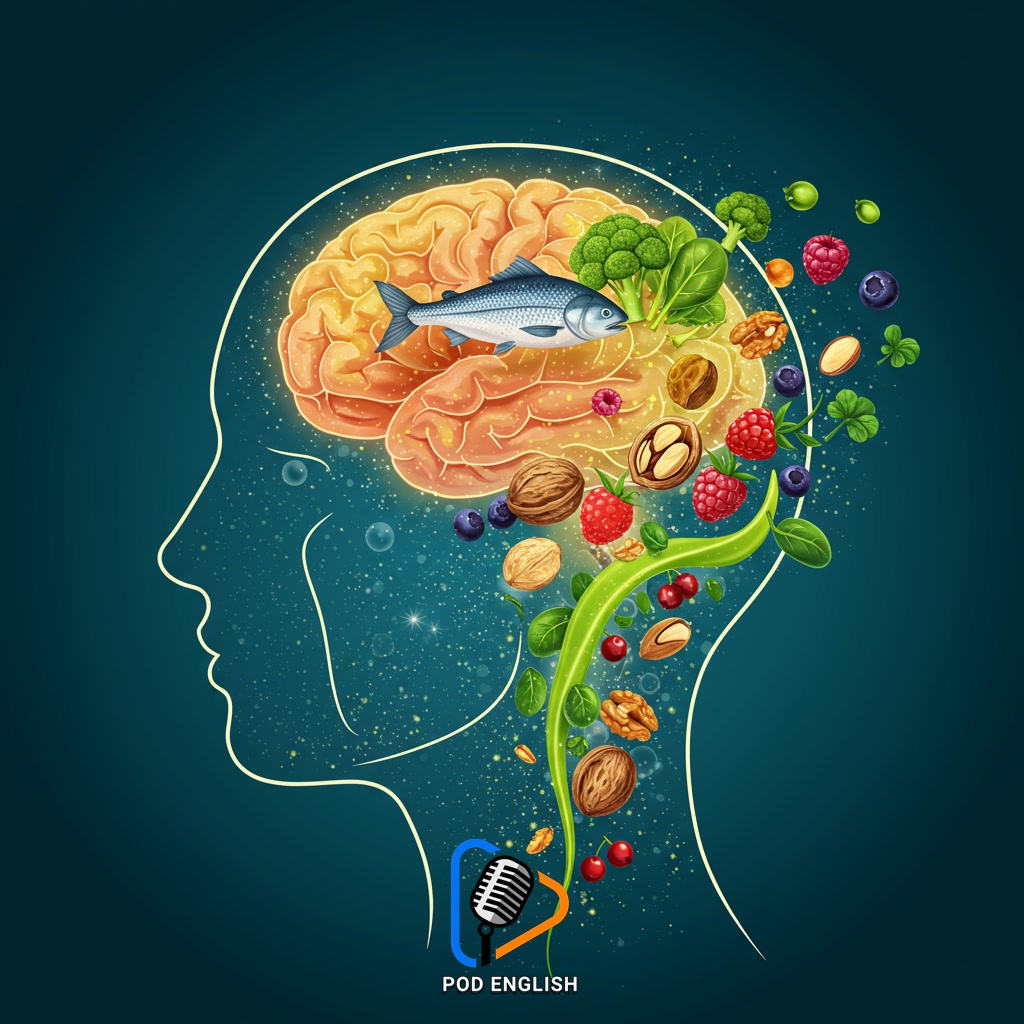
Section 3: Top Foods to Include in Your English Learner’s Diet
To fuel your brain optimally for learning English, focus on incorporating specific foods into your diet. Fatty fish like salmon and mackerel are excellent sources of omega-3 fatty acids, crucial for memory and cognitive function. Berries, such as blueberries and strawberries, are packed with antioxidants that help protect brain cells. Nuts and seeds, like walnuts and chia seeds, provide healthy fats and vitamin E. Leafy green vegetables, including spinach and kale, offer vitamins and nutrients linked to brain health. Whole grains provide a steady release of energy, preventing energy crashes that can hinder concentration. Including these nutrient-dense foods regularly can provide the necessary support for your brain as you tackle new vocabulary and grammar.
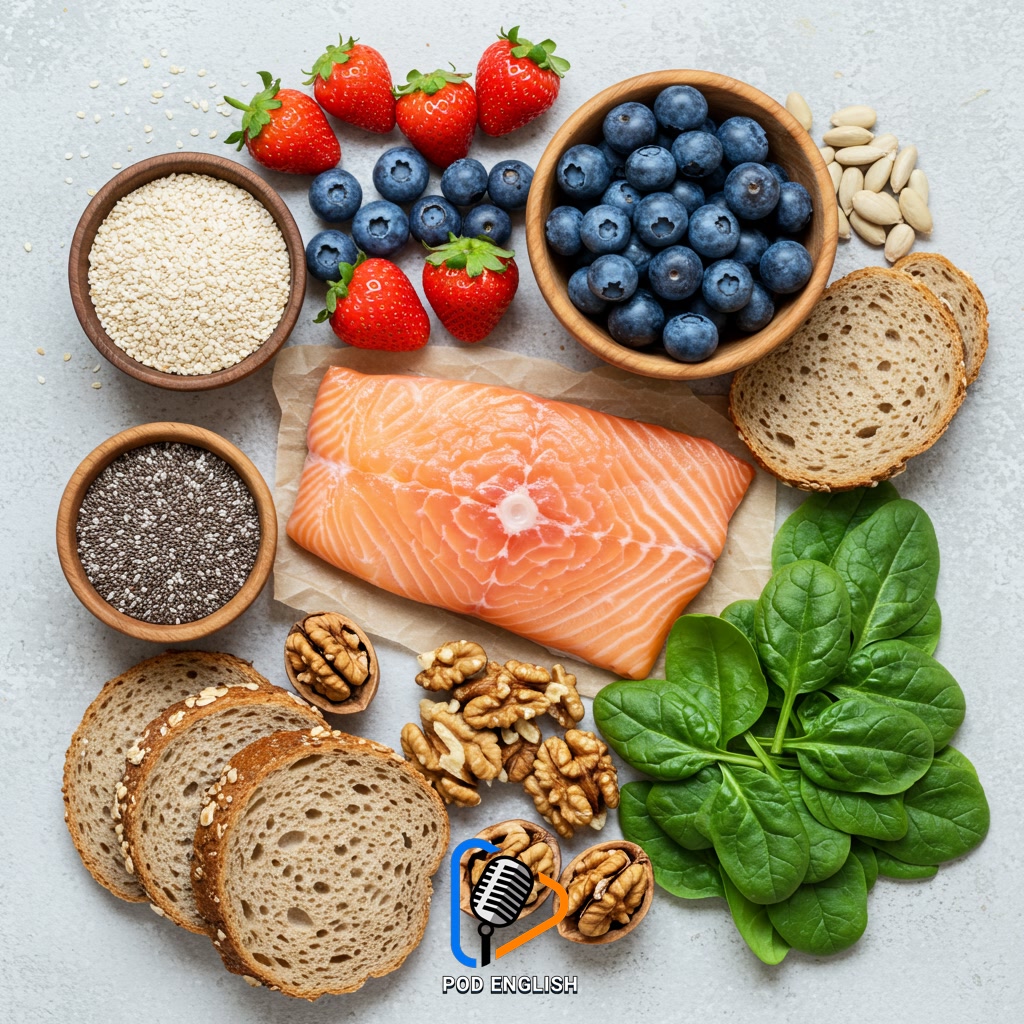
Section 4: Foods and Habits to Limit for Optimal Brain Function
While incorporating beneficial foods is key, it’s equally important for English learners to be mindful of what can hinder brain function. Limiting highly processed foods, which are often high in sugar, unhealthy fats, and artificial additives, is crucial. These can lead to energy crashes, poor concentration, and inflammation, all detrimental to learning. Sugary drinks, excessive caffeine, and excessive consumption of saturated and trans fats found in fast food and fried items should also be reduced. These habits can negatively impact memory consolidation and focus, making it harder to absorb new vocabulary and grammar. By consciously reducing these less beneficial items, you create a more stable environment for your brain, optimizing its capacity for the cognitive demands of learning a new language.

Section 5: Hydration and Other Lifestyle Tips for Enhanced Learning
Beyond avoiding detrimental foods, optimizing your brain for English learning also involves embracing positive lifestyle habits, starting fundamentally with hydration. Staying adequately hydrated is crucial because your brain is composed largely of water, and even mild dehydration can significantly impair cognitive functions vital for language acquisition, such as focus, memory, and concentration. Aim to drink water consistently throughout your day. Furthermore, incorporating sufficient, quality sleep, engaging in regular physical exercise, and practicing effective stress management techniques are powerful allies for your brain. Quality sleep is essential for memory consolidation, exercise boosts blood flow and neurogenesis, and managing stress prevents its negative impact on learning capacity. By combining a brain-supportive diet with these essential lifestyle practices, English learners can create an optimal environment for more effective absorption and retention of new language material.
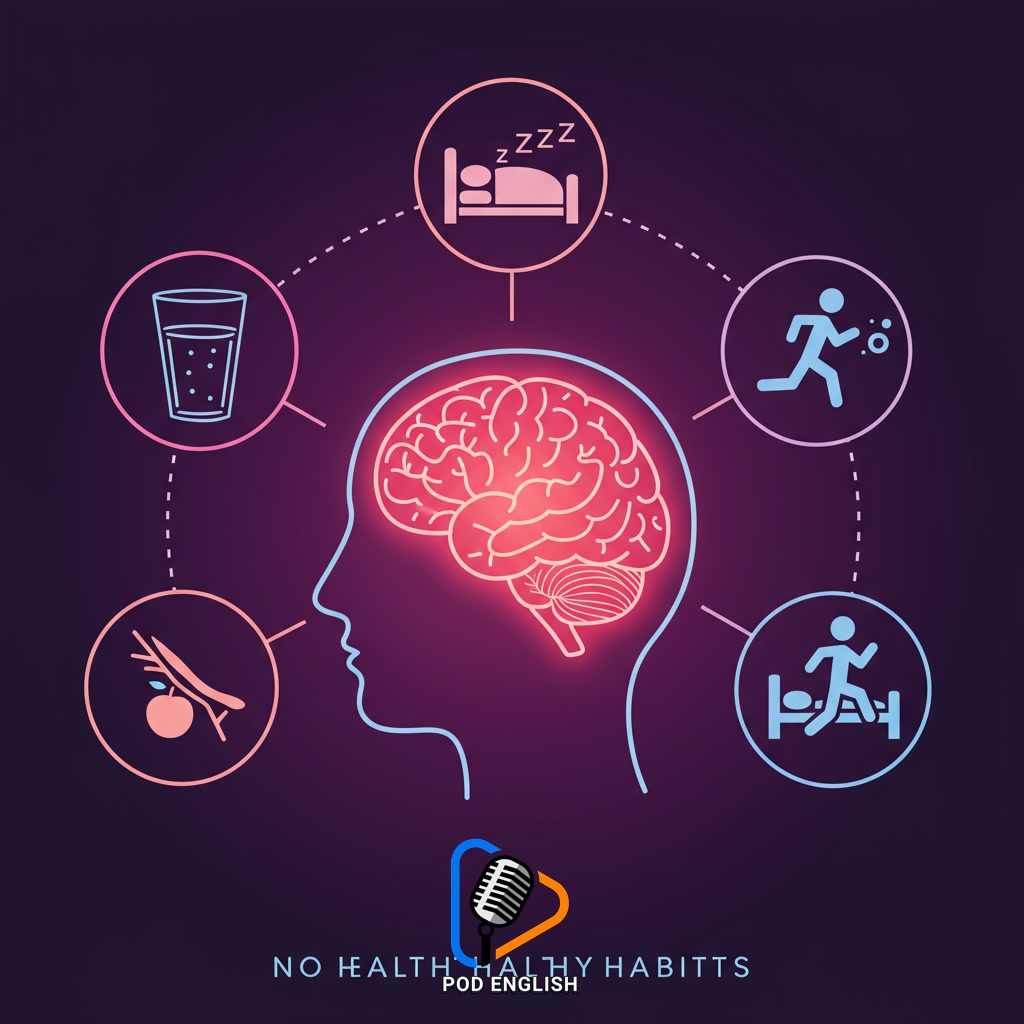
Section 6: Building a Brain-Healthy Meal Plan for Your English Studies
Building on the foundation of proper hydration, the next crucial step for optimizing your brain for English learning involves consciously planning your meals. A brain-healthy meal plan isn’t about strict dieting, but rather about consistently fueling your cognitive functions with the right nutrients. Focus on incorporating foods rich in Omega-3 fatty acids, found in fish like salmon, walnuts, and chia seeds, which are vital for memory and learning. Antioxidant-rich fruits and vegetables, especially berries and leafy greens, help protect brain cells. Include whole grains for steady energy release to maintain focus during study sessions, and lean proteins for building neurotransmitters. By planning regular meals and snacks featuring these components, you provide your brain with the stable energy and building blocks it needs to effectively absorb and retain new English vocabulary and grammar.
